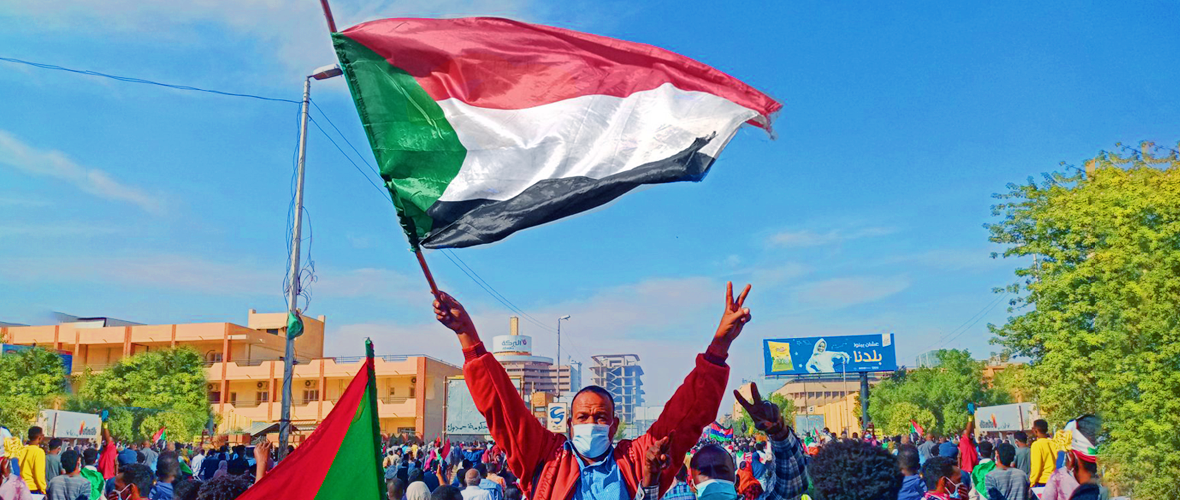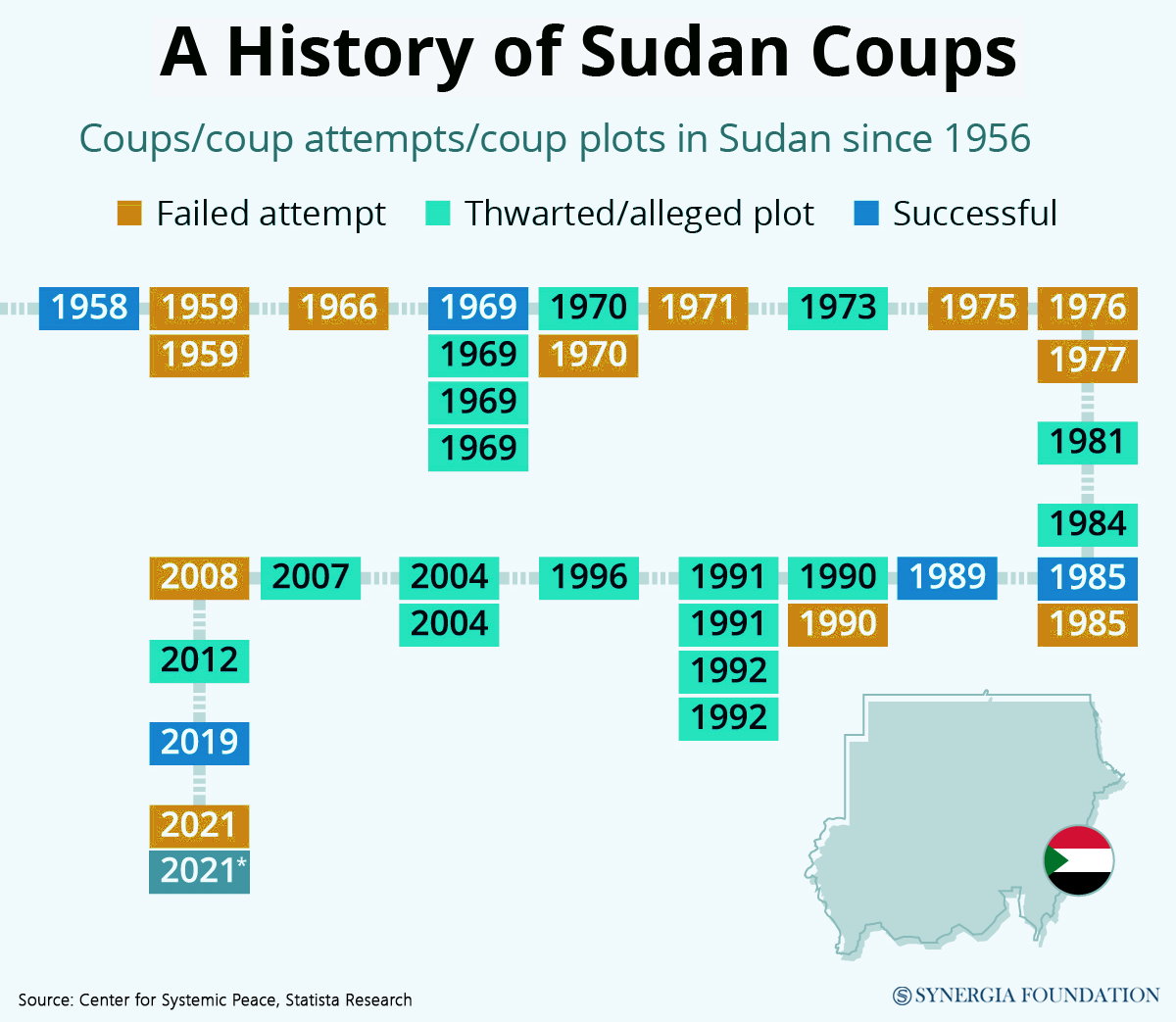Another Nail in the Coffin?
January 21, 2022 | Expert Insights

Sudan continues its dalliance with democracy, as successive military coups and political transitions leave the civilians vulnerable.
Background
For the Sudanese public, there does not seem to be a resolution in sight after months of political negotiations. A change in power alignments within the country has not succeeded in stitching together a stable political front. Following months of political and military see-saw, in yet another dramatic twist to the Sudanese establishment, PM Abdalla Hamdok has resigned at the start of the year. A failure to broker a peace deal between the military and civilian leadership is believed to be the primary cause.

Analysis
Sudan’s political graph has been a subject of much interest in the African continent. After the success of its 2019 revolution, which overthrew the Islamist regime of Omar al-Bashir, it had managed to resurrect some hopes about a democratic transition.
However, the military coup in 2021 destabilised the country’s political regime. Lt. Gen. Abdel Fattah al-Burhan overthrew the agreement which brought together civilian and military leaders to from a transitional arrangement. Burhan dismissed the civilian component of the agreement and dissolved the interim government. He went on to arrest ministers and senior politicians, including Prime Minister Abdalla Hamdok. Soon after, Burhan and Hamdock signed an agreement which returned the latter to power but without restoring the previous constitutional order. The arrangement was prone to hiccups and eventually resulted in Hamdock’s resignation in January this year.
This has left the region in turmoil, with the military and civilians in direct confrontation with each other, sparking a constitutional crisis. The turbulent situation could easily lead to the military declaring a state of emergency, which grants it additional powers to even appoint a new prime minister. This would be a tremendously unpopular idea and only lead to further political and economic impasse.
Meanwhile, South Sudan is approaching the final year of its peace arrangement. With elections on the horizon, Sudan’s critical role as a mediator and guarantor of peace is essential. Its flaky democratic existence could not be worse timed. The risk of an armed conflict between the two counties over outstanding border disputes, is exponentially increased under a military regime in Sudan.
In the West, Sudan’s stability has a direct impact on the governing set up in Chad, most notably the Rapid Support Forces and the armed movements from Darfur. Renewed, intense violence in Darfur is an eerie precursor to civil war in the region as the political establishment itself remains shaky. The effects on Chad and Libya, where Sudan maintains an extensive military involvement, is definitely debilitating.
With the collapse of the democratic transition in Sudan, an expansion of Russia’s presence in the region can be expected. In fact, the Moscow-based paramilitary organisation – the Wagner Group is actively engaging in the region, ever since the coup, in order to establish a naval base on the Red Sea Coast. An extended agreement between the Sudanese military and Russia is a clear sign of the latter’s growing interest in the region.
Assessment
- The implications of a shift in Sudanese political alignments will be immediate and far reaching for both Africa and the international order. Collapse of the democratic transition in Sudan would be catastrophic for the global system and the international community must intervene with speed and efficacy.
- Continued military dominance is not only a tremendously unpopular idea in Sudan, it is also an impediment to critical economic reforms. Only a combination of popular resistance and continued international pressure can salvage the revolution that the Sudanese citizens began in 2018.








Comments